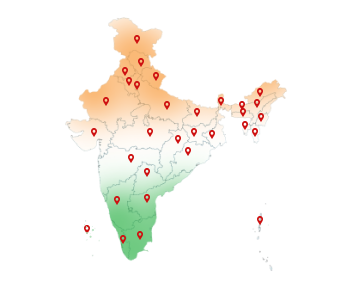24-Sep-2024
DSC for NRI: Secure, Simple, and Efficient
An NRI (Non-Resident Indian) is an Indian citizen who resides outside India for work, business, or other reasons.
For NRIs, managing tasks in India, such as signing documents or filing taxes, can be challenging since they are not physically present. A Digital Signature Certificate (DSC) provides a practical solution by allowing secure online signing of documents and handling important tasks from anywhere in the world. To make managing these tasks easier,buy DSC for NRI and stay connected with India easily.
Who Comes Under NRI:
Indian Citizens Living Abroad: Any Indian citizen residing outside India for more than 182 days in a financial year.
Indian Citizens Working Abroad: Individuals who have gone abroad for employment or business purposes.
Students: Indian students studying abroad for long-term courses also fall under the NRI category.
Individuals to Stay Abroad: People who have gone abroad to stay there for an indefinite period.
Who Looks After the NRI:
Ministry of External Affairs (MEA): The MEA looks after issues related to NRIs through its NRI Division, which deals with welfare, policy matters, and legal issues concerning NRIs.
Ministry of Home Affairs (MHA): The MHA also handles certain aspects, such as visa and citizenship-related matters.
Consulates and Embassies: Indian embassies and consulates abroad provide services to NRIs, such as passport renewal, emergency services, and assistance with legal matters.
Income Tax Department: The Income Tax Department of India deals with the tax-related issues of NRIs, including tax exemptions and obligations.
Reserve Bank of India (RBI): The RBI regulates financial transactions, banking, and investment matters concerning NRIs under FEMA.
Penalty for Not Declaring NRI Status
Under Foreign Exchange Management Act (FEMA) guidelines, there are no penalties for not declaring your NRI status.
However, NRIs must declare their income and file an income tax return for income earned in India. They are obligated to pay taxes on income that arises, accrues, or is deemed to arise in India.
How do you choose the right certifying authority to Buy a DSC as an NRI?
1. Check Legal Approval:
Make sure the Indian government approves the CA, so your DSC for NRI is legally valid.
2. Global Access:
Pick a CA that offers services you can access easily from abroad, including applying and getting your DSC online.
3. Good Customer Support:
Look for strong customer support that can help you across different time zones.
4. Easy Document Submission:
Choose a certifying authority that allows you to submit documents online, which is more convenient when you're not in India.
5. Compare Prices:
Check the prices and look for any special offers for NRIs to find a good deal.
6. Simple Renewal Process:
Choose one that makes it easy to renew your DSC online when it expires.
7. Security Features:
Ensure it offers strong security for your DSC, like encryption, to protect your data.
Benefits of Capricorn DSC for NRIs
High Security: DSC provides strong protection for your data.
Identity Verification: It confirms your identity on any government portal.
Flexible Payment Options: You can pay either in INR or USD according to your choice.
Domain Ownership: Helps prove that you own a domain.
Cyber Protection: Protects you from online threats.
Easy Online Services: Makes it simpler to file taxes, submit e-tenders, participate in e-auctions, and use other online services.
Pay After Approval: You can apply for a DSC without paying upfront and have to pay only after your application is verified and approved,
Assistance Services: Capricorn CA offers full DSC services, helping with forms, document preparation, and payment. They also provide customer support, status updates, and compliance advice.
Want to enjoy these benefits? Obtain your DSC for NRI today to experience secure document signing and smooth transactions.
Is It Mandatory for NRI to File ITR?
No, NRIS doesn't need to file an income tax return (ITR) solely based on its non-resident status. However, NRIs are required to file an ITR if their total income earned in India exceeds the specified threshold for the financial year:
Under the Old Tax Regime, NRIs must file if their total income in India is above ₹2.5 lakhs.
Under the New Tax Regime, NRIs need to file if their total income in India exceeds ₹3 lakhs.
Additionally, even if their income is below these thresholds, NRIs may still need to file an ITR in certain cases, such as to claim refunds or for compliance with other tax obligations.
Basic Tax Exemption for NRI
NRIs are required to file an income tax return in India if their taxable income in a financial year is more than INR 2.5 lakhs.
Income between INR 2,50,001 and INR 5,00,000: 5% on the amount above INR 2,50,000.
Income between INR 5,00,001 and INR 10,00,000: INR 12,500 plus 20% on the amount above INR 5,00,000.
Income above INR 10,00,000: INR 1,12,500 plus 30% on the amount above INR 10,00,000.
Conclusion
DSC for NRI verifies your identity on Indian government portals and other official platforms. It enables you to electronically sign documents and forms from anywhere around the globe. Get your DSC today and get protected against cyber threats and fraud.


